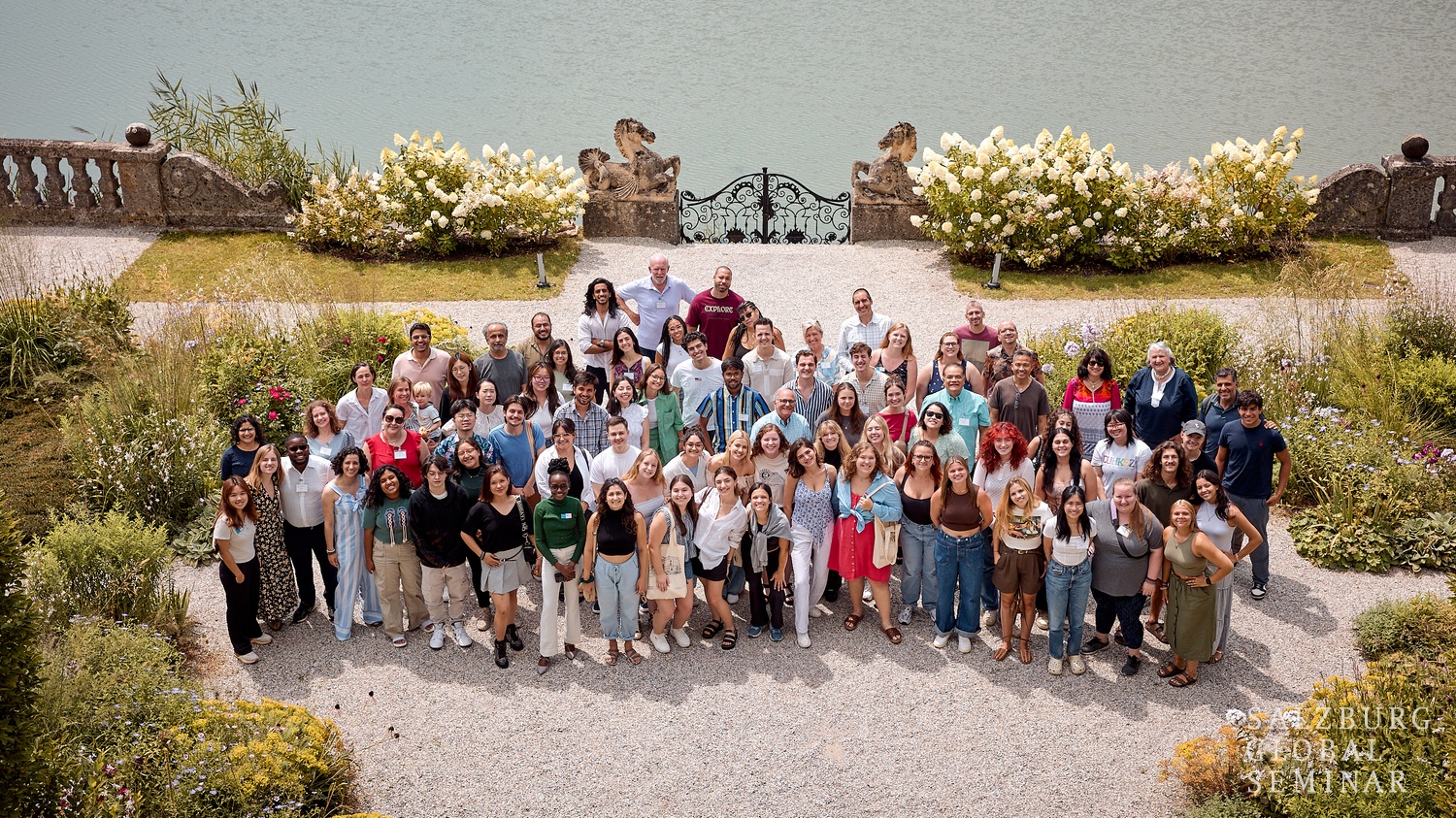Salzburg Global Seminar: The PLUS took part!
Paris Lodron University of Salzburg Students Consider New Ways to Reinvent Media with Compassion, Care, and Community. Paris Lodron University of Salzburg students and faculty were among more than 85 participants at the 16th in-person convening of the Salzburg Academy on Media and Global Change.
The 16th in-person Salzburg Academy on Media & Global Change convened over 85 participants for around two weeks in July to explore human belonging in the age of machines.
Participants came together at Schloss Leopoldskron in Salzburg, Austria from over 15 different institutions around the world to consider how to support and prioritize human belonging, compassion, attentiveness, and solidarity in a time of increasingly invasive technologies.
Participants from the Paris Lodron University of Salzburg included student Antonia Bockamp and faculty members Thawab Hilal and Professor Hanan Badr.
Through the theme “ Belonging in the Age of Machines”, participants were challenged to envision media practices and pedagogies that emphasize care and meaningful connections. This theme enabled participants to imagine how media systems could strengthen social cohesion and promote belonging in the age of abundant digital media.
Throughout the program, participants from around the world engaged in a range of activities, including lectures, workshops, and cultural activities led by media-makers, researchers, creative practitioners, and community stakeholders from across the world.
Participants also engaged in film screenings, a living library, art and cultural experiences, tours of Salzburg and Gosau, and excursions to the Mauthausen Memorial and the Dokumentation Obersalzberg museum. This year, participants were also hosted by the Paris Lodron Universität Salzburg for a one-day symposium to dive deep into issues of critical and current concern in our world.
Reflecting on her experience, Antonia Bockamp stated, “The Media Academy was an incredible experience for which I am immensely grateful. The conversations held during and after the lectures will remain in my memory. This is truly a wonderful program, and I am thankful to have been a part of it.”
Thawab Hilal commented, “Salzburg Global Seminar brings together a diverse group of academics, thought leaders, innovators, and, most importantly, youth from across the globe. The program empowers these young leaders to engage in meaningful dialogue, embracing diverse viewpoints and working towards reconciling differences for the common good. By fostering cross-cultural understanding and collaboration, the program equips the next generation to tackle global challenges with empathy and shared purpose.”
The international cohort worked in small groups to develop futuristic media initiatives, which were presented on their last day in Salzburg. Their final publication, “ Love Against the Machine: Imagining Soulful Media Futures”, features five creative interventions that explore how media systems can be more human-centric in the future:
- The Future of Music: 2074s Cultural Renaissance: The MINT technological device transforms music experiences, ensuring fair treatment for artists, breaking down language barriers, and supporting social justice and historical education through immersive technology.
- The RÊVE: An AI-powered space that reframes art to be accessible, equitable, and fair.
- Neurowaves: Transforming the Future of Advertising: The iPatch technological device is a public interest-centered platform for advertising in the service of global solidarity and peace.
- Magazine: A fashion and lifestyle magazine with a focus on inclusivity, sustainability, care, and belonging.
- Alexandria: An immersive social media platform where humans interact seamlessly with AI, the environment, and nature to facilitate the sharing of knowledge and human experiences.
Participants’ media outputs are shared on the online platform Medium and will also be featured on the Salzburg Global website.
The Salzburg Academy on Media and Global Change is an annual program that convenes emerging leaders in media fields to build networks for positive change. If you would like to find out more, please email Paul Mihailidis, Faculty Chair and Program Director.





